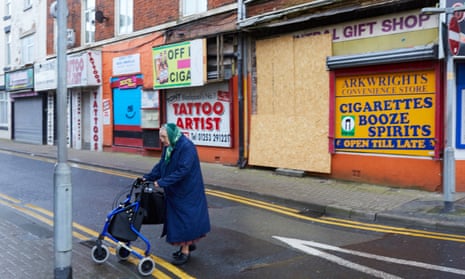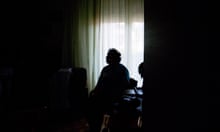Older women are more likely to be poor, socially isolated, badly housed, unhealthy and die sooner because of a lifetime of lower pay and unequal working conditions than older men, according to a new report.
A study by the Centre for Ageing Better found “shameful” and stark contrasts in people’s experiences of later life, with severe inequalities among older people largely a product of poverty and disadvantage throughout life.
Women aged 65-69 suffered the worst discrimination of all. Only 36% of this age group received the full state pension in 2014, the review found.
“A good later life is something we should expect for everyone. It should not be conditional on where we live or how much money we have, nor on our gender, race, disability or sexuality,” said Claire Turner, director of evidence at the Centre for Ageing Better.
“But cumulative poverty and disadvantage throughout life mean that many people will suffer poor health, financial insecurity, weak social connections and ultimately a shorter life. These inequalities – with richer older people living around eight years longer than those with less advantage – are shocking and have sustained over time, despite policy and practice designed to reduce them.
“Helping current older people and protecting future generations from this shameful level of inequality in health and wealth should be at the heart of policy making across health, housing, work and pensions.”
Female part-time workers or women with low-grade jobs are at greatest risk of financial insecurity in later life, the report found. Women who have spent most of their lives working part-time are no better off in retirement than women who have never worked.
There is also evidence which suggests that people from ethnic minority backgrounds are less likely to have adequate pension savings, with women from ethnic minority backgrounds at particular risk.
Review on Inequalities in Later Life, commissioned by the Centre for Ageing Better, is a collaborative work involving teams from the Institute of Health & Society and Institute for Ageing at Newcastle University and the International Longevity Centre-UK.
The teams spent a year studying 25,000 research papers, published over the past decade. They found that poor education and work opportunities, along with lack of social connection, have long-term consequences. These consequences are often made worse by reduced income in retirement and the impact of having many long-term health conditions.
While women suffer these inequalities more than men, however, people from black and minority ethnic (BME) backgrounds and some from LGBT backgrounds are also disproportionately disadvantaged.
The review also found that older people with the least wealth are more likely to have one or more health problems, including angina, diabetes, depression, osteoarthritis and cataracts. Poorer people in later life are up to 4.2 times more likely to have diabetes and up to 15.1 times more likely to have osteoarthritis. Older people who live in poorer areas are significantly more likely to be frail than those who live in richer areas and have more wealth.
Education is key in preventing isolation. The review found that higher education and wealth are associated with better social connections in later life.
The review also found that many older people in socially deprived areas worry about safety, security and mobility in their local area. Researchers, however, pointed to a lack of research in housing inequalities for older people. “This creates a real problem in understanding fully how poor housing affects those in later life,” they said.










